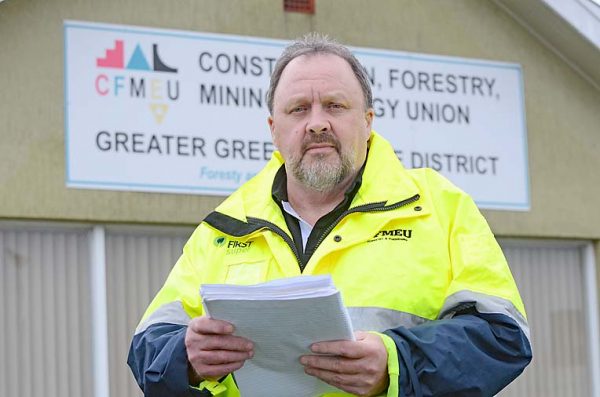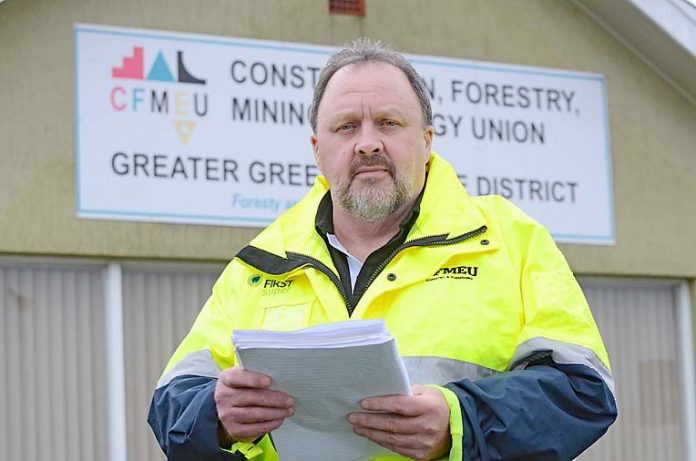
REGIONAL tissue manufacturing giant Kimberly-Clark Australia and hundreds of its employees at the Millicent site remain in deadlock over protracted wage negotiations.
This follows more the 225 workers at the Millicent site rejecting the proposed deal put on the table by management.
The ongoing impasse comes as the long-term future of the Millicent operation remains under a cloud amid a sweeping worldwide review of the company’s manufacturing sites.
Employees have been urged to accept the wage offer by management given the uncertainty facing the site.
In a ballot of more than 240 blue-collar workers, only 16 employees voted in favour of the proposed enterprise bargaining agreement (EBA) deal.
The major sticking points include some workers facing a 30pc wage cut, a 4pc increase in wages over four years and a reduction in redundancy entitlements.
Construction Forestry Mining and Energy Union pulp and paper workers district secretary Alex Millar said the outcome of the ballot sent a clear message to management that workers were not willing to back down.
He claimed the ballot demonstrated the issue had not divided the workforce.
“The workers are saying we do not accept any of it,” Mr Millar said.
His comments come as workers also await the outcome of a postal vote regarding whether protected industrial action should be taken at the site.
The union received the go ahead by the Fair Work Commission to undertake the postal ballot.
Union Green Triangle secretary Brad Coates revealed the ballot of workers – conducted by the Australian Electoral Commission – closed this week.
But he said the ballot did not necessarily mean workers would take industrial action even if employees voted in favour of the action.
“This decision will be up to the employees,” Mr Coates said.
Describing the outcome of the EBA ballot as “compelling”, Mr Coates called on KCA management to head back to the negotiating table.
He said the union understood the Millicent Mill was not “losing money” and called on management to open its books so a forensic accountant could sift through the mill’s financial position.
The regional union identity revealed a similar process was undertaken at an interstate processing facility.
Mr Coates called for the decision regarding the EBA to be put on hold until the future of the Millicent mill was known.
“Management is not prepared to commit to the ongoing viability of the plant beyond this year.”
He said workers had already agreed to reduce the number of employees on the site to improve its efficiency.
Mr Coates also expressed frustration the negotiations with the company had been conducted via a hired facilitator and not the management of the mill.
The South Eastern Times contacted mill manager Scott Whicker for comment.








